By
Abu Sufian
Writer, columnist and social activist Shelina Zahra Janmohamed was born in 1974 in the UK. She is a British Muslim writer of East-African and South-Asian origin. Janmohamed’s parents emigrated from Tanzania to Britain in 1967. The Guardian describes her as “a commentator on British Islam and Muslim women”.[i]
She is an Oxford graduate and was brought up in north London. She was named by The Times newspaper and the UK Equalities and Human Rights Commission as one of the UK’s 100 most influential Muslim women. Janmohamed is also named as one of the 500 most influential Muslims in the world.[ii] She has been working as a commentator for such print media as The National, The Telegraph, The Times, Guardian, Muslim News and Emel magazine, and is also a regular contributor in her popular blog named spirit21.[iii]
Apart from being a litterateur and columnist, Shelina Janmohamed is also a social activist and a recognized expert in Islamic marketing, having fifteen years of global blue-chip marketing experience. Currently, she is serving as the Vice President of global branding consultancy firm Ogilvy Noor, which offers “expert practical advice on how to build brands that appeal to Muslim consumers, globally”.[iv] As a part of her social activism, she participated in the UK Foreign Office’s program titled “Projecting British Islam” and in that capacity visited Sudan, Egypt, Saudi Arabia, Qatar, Turkey and Indonesia.[v]
In 2007, her blog (spirit21) won the Best Blog award and she was the winner of the category of Best Female Blogger in the Brass Crescent Awards. Her debut memoir, Love in a Headscarf (2009), also won some awards that include Best Non Fiction Writer at the Muslim Writers Awards in both 2008 and 2009. She was also awarded one of Britain’s ten future female leaders of advertising by the IPA (Institute of Practitioners of advertising in 2013) and in April 2015 was shortlisted for the Asian Women of Achievement Awards. Her latest book titled Generation M was published by I. B. Tauris Publishers. This book, as contended by the publishing house’s website, provides a unique and timely insight into the lives and future of the contemporary global Muslim population.[vi]
Shelina Janmohamed’s literary debut Love in a Headscarf can be considered as a counter-narrative to conventional cliché-ridden narrative practised largely by many Muslim writers in Britain and beyond. The memoir introduces the readers with a new depiction of Muslim women living in Britain and West at large. The author notices that, books available in bookstores notably failed to portray true images of Muslim women. This conventional, dull and lifeless representation of Muslim women induced her to produce Love in a Headscarf. Many critics acclaimed her memoir as being an iconoclastic narrative that portrays Muslim women positively. Claire Chambers, one of the preeminent scholars of Muslim women’s writings in Britain and beyond, contends that, while most auto/biographies about young Muslim women mainly centered on her discovering ‘freedom’ and secular life, Janmohamed’s narrative is unusual in describing a human being’s journey towards Islam as a civilization or a religion.[vii]
This interview was carried out via E-mail in May 2015.
Abu Sufian: What induces you to write? Is it the sheer pleasure of writing – for instance, the joy of narrating your life story or imaginative stories to others – or do you have some ideas, philosophies and messages to convey?
Shelina Janmohamed: When I started writing publicly in 2005 it was to make an intervention in the public discussion. Muslims were constantly in the news and I felt there were no voices from a perspective that was comfortable being both British and Muslim. All voices were very serious and one-sided. I wanted to inject nuance and humour as well as a different viewpoint. When I look back at my childhood I can see that I did used to write, but it wasn’t noticed and never got developed at that time.
AS: Is writing intoxicating for you, or is it a way of resolving problematic and complex issues (private, societal or religious) that may not be solved otherwise?
SJ: I find that writing really helps me to think through ideas. And I take a real pleasure in the creation of an idea, or a well put together narrative. I find that if a piece of text I’ve created encapsulates an idea well I get very excited. Often, if there are things happening in the news, sitting down to write helps me to formulate my opinion on an event and express a new perspective.
AS: In Love in a Headscarf, you extensively noted the tribulations and challenges you underwent – challenges that were mostly culturally enacted malpractices – in searching for your life partner, “Mr. Right”. Do you think that those experiences helped you to become a writer, a columnist and social activist, or is there something else that motivates you to pen, be it creative writings or newspaper articles?
SJ: The story that I wrote in Love in a Headscarf was almost an excuse to sit down and write. I wanted to tell a story, I wanted to find a medium of expression for my voice, and the search for love and the traditional ‘coming of age’ tale felt very natural. Plus these tales hadn’t been told before. Now talking about love and the social and cultural constructs around being a Muslim are much more common. The experiences helped me grow as a person – so perhaps that contributed to my writing? That is a question perhaps for readers to answer!
AS: You are both a novelist and columnist, not to mention an award-winning blogger. While creative writings are spontaneous and largely influenced by subjectivity and emotions, writing newspaper articles and blogging – on the other hand – mainly deal with logic, practicality and facts. How do you balance between these two completely different forms of writings, and do they interfere with each other?
SJ: Love in a Headscarf was a piece of creative non-fiction. It catapulted me into writing op-ed and these are two quite different styles of writing. I do find it challenging to switch between the two. At the moment most – perhaps all – of my writing is opinion and news. I’m looking forward to finding some time and creative energy to go back to writing more creative non-fiction.
AS: Do you want to share with your readers something about your award winning blog (Spirit21)? How the idea first came into your mind? How is it going?
SJ: I set up the blog because I wanted to create a space for some new thinking. The little mini-me and the text I wrote about living outside the box was something very heartfelt and was fresh at that time (it’s now ten years old!). As my writing got increasingly noticed, I was invited more and more to write for the mainstream press. Now, the blog is mainly a place where I re-publish articles I’ve written elsewhere to make sure my body of work is contained in one place. It is definitely due a re-vamp because although it was fresh in 2005, it needs to be brought into 2015!
AS: In an interview with The Independent UK, you clearly expressed that existing books on Muslim women portray them “in black veils and [as if] they were about escaping from slavery and forced marriages”.[viii] Is there not a dire need for Muslim women to produce positive accounts of their life stories to rebut, dismiss and counter those misery narratives that, I believe, are representative of a small fraction of Muslim women? What is your suggestion and expectation to young Muslim women writers in this regard?
SJ: There is definitely a shortage of writing that represents the full breadth of experience of Muslim women, expressed in their own voices. Muslim women should not be writing with the objective to portray themselves in a particular way, but rather to express their own experiences and portray who they are. For me, honesty in telling our experiences is the most important thing, positives, negatives and the journey in between.
AS: What induces writers from Muslim backgrounds to narrate bleak stories of their life or depict an imaginary one; you termed this genre as ‘misery memoir’? Given that this ‘misery genre’ is an extremely dominating trend, do you think they depict reality or do you have reservations over the integrity of the writers?
SJ: Misery memoirs are a very popular genre. There appears to be a human need to learn about the lives of others, and in particular to see some horrific aspects of life that otherwise we would not be exposed to, and then be thankful for what we do have. Equally, many writers express how writing such books has helped them through the healing process. It’s not for me to judge their experiences and meanings. All I know is that misery memoir sadly is the majority of reading literature about Muslim women and that is something that needs to be rebalanced. No other group is so overwhelmingly represented by just one genre of expression.
AS: Though small in number, there are some counter-narratives to conventional ‘misery genre’. Writers like you, Leila Aboulela, Na’ima Robert and others’ accounts are different, and they tell stories of challenging but uplifting experiences as a Muslim woman. Do you think, in the near future, this emerging group of writers will be able to dismiss and rebut the stereotypical and prejudicial portrayal of Muslim women?
SJ: Changing attitudes is a long and slow process and one that must be tackled from a wide range of perspectives. Arts and culture is just one of those aspects. We are doing our bit and hope that it will create a ripple in an ocean of change.
AS: You know that arranged marriages (that are largely practised in many eastern societies) are often mistaken for ‘forced-marriage’. When it comes to Muslim countries, media and literary stereotypes are rampant and constant in treating the practice as coercive to women. How do you see this phenomenon?
SJ: The confusion of arranged marriage with forced marriage is rampant, and sometimes it feels as though it is wilfully done, as though people are always seeking the negative in Muslim practices. Although distinguishing between forced and arranged marriage wasn’t my main goal in writing my book, it was certainly something I felt was a benefit of the story.
AS: Do you believe in multiculturalism? As you live in Britain, I want to ask specifically, what possible challenges a Muslim woman (who is diasporic or newly migrant) may face in adapting her life with British cultures and way of life. Does she necessarily have to compromise her religion, culture or choices in order to integrate?
SJ: I see no conflict in being Muslim and British. In fact, I see they support each other. I remember when I first started writing my blog, I wrote a piece which I thought was fun and lighthearted but which generated a huge amount of controversy – I even got invited onto the radio to talk about it – called “Five things I love about being a British Muslim woman” which addresses precisely the question of how I think the choice ‘either/or’ of British and Muslim is a false one, and the dichotomy is not integrate/don’t integrate but rather we can participate and our values as Muslims dovetail into the act of being a good citizen and subject.[ix]
AS: Given the fact that Muslim women (UK and beyond) are less active in producing literary texts and newspaper/magazine articles, compared to their male counterparts, do you believe that there is a need for greater engagement of Muslim women in the field of writing? Are you satisfied with the current engagement of Muslim women in literary and journalistic performance?
SJ: I always try and encourage as many people as possible to tell their stories. It is the human connection that changes the way those around us engage with us, and the most powerful, honest and uncontestable way to do that is through our own expression. More Muslim women should be brave enough to put pen to paper, to put themselves forward, to join the media, to be front centre and present. It’s one of the most incredible contributions someone can make, but requires courage.
AS: What is your expectation and advice to those Muslim women who have fascinating stories like Love in a Headscarf to share, but they do not want to or believe they do not have the literary skills to come up with their stories? Will you suggest alternative ways to tell their stories? Blogging, Facebook, or Tweeting?
SJ: For anyone who is interested in writing their stories, blogging, writing updates on facebook or any other format where they can freely express themselves and craft their art are wonderful opportunities. It can take a while to develop an individual voice and sharpen style so I would definitely encourage those who want to express themselves to take advantage of these different media.
AS: The term ‘British Muslim Writing’ is comparatively new and a hotly debated topic for the critics. You are often referred to as ‘Muslim writer’, ‘practicing Muslim writer’ or ‘Islamic writer’. How do you feel about being tagged as such? Is there any drawback of subscribing a writer via his/her religious affiliation, given that tagging writers such as Salman Rushdie and Hanif Kureishi as ‘Muslim writers’ helps perpetuate the caricaturization of Islam and Muslims?
SJ: I have always happily identified myself as a ‘Muslim writer’ because much of my early writing was deliberately published to express my Muslim identity and story. However, I think it’s important in our cultural scene to have writers who just happen to be Muslim, playwrights who just happen to be Muslim and so on. That’s important to normalize Muslim contribution without a label or a difference. Now, I don’t always use the label because my provenance is not material to the topic I’m discussing in many situations.
AS: Of all allegations and criticism of Islam, women-related issues are palpable, constant and dominant. Of all debates regarding Muslim women, the issue of Hijab (Headscarf) is not only widely discussed but also perhaps an over-discussed one. In your memoir, you showed a strong resilience to wearing Hijab, claiming that it was your independent choice. How will you respond to those who still propagate the idea that Hijab is an ‘obstacle’ in liberating women? As a Muslim woman, do you feel offended when such claims are made?
SJ: Body image, women’s clothing choices and sexualisation are hot topics in the women’s movement, whether that is to do with covering or uncovering. I situate my choice to cover within that wider debate and argue that modest dress is an expression of my values. I feel claims that it is an obstacle rarely listen to Muslim women’s voices that this is a choice of self-expression and even when they agree that women have chosen it for themselves they say it is because they are brainwashed. This is what I find highly offensive – that somehow Muslim women, because they are Muslim, don’t have the brains or the adult decision making processes to determine their own lives. People can disagree and I’m happy for them to do it, but we must acknowledge that Muslim women have as much agency as any other woman.
AS: Considering the allegation of critics of Islam who asserted that, “Islam is a religion for men” and the fact that most of the books on Islam – those that interpreted Qura’n (tafsir) and explicated prophetic traditions (Hadith) – are written by men, are you concerned that there might be a male-centered explanation of some Qura’nic verses or prophetic traditions (Hadith)? If you believe that there might be male-domination in interpreting those religious texts, do you urge contemporary Islamic scholars – especially females – to relook, reexamine and reinvestigate existing religious books written by men?
SJ: I definitely think that assessing texts from a female perspective and in a new social context is important. I respect the scholars of our history who have laid the foundations of faith through rigorous and lifelong study, but I think it is fair to say that every human being is affected by their own social context in understanding and interpreting texts and this has affected the way laws and attitudes have been created. Without having women inputting their experiences and points of view we are shortchanged as a faith community.
AS: This raises a complementary question to the previous one. The only Muslim women we hear of to any extent are Aisha (RA), Fatima (RA), and Khadija (RA). What happened to the others? Do you believe that Muslim women scholars have been largely forgotten; therefore, they need to be rediscovered and given research attention that is long overdue?
SJ: The women of Islamic history are slowly being rediscovered with works by scholars such as Fatima Mernissi and Akram Nadwi. We definitely need more such historical studies to establish women as a fundamental and inherent part of Islamic heritage. But we also need women now to be establishing a female history for our future ummah.
AS: Many ideas, ethos and themes that mainstream feminism or Western feminism holds are not coherent with Islamic principles, therefore feminism, to a great extent, is neither able to be representative of most Muslim women nor it serves their causes. Given this scenario, what is your stance while working for feminist causes and what is your advice to those millions of your fellow sisters who want to contribute to women/feminist causes and are lost in finding the right platform to have their voices heard?
SJ: For me, feminism means the action of ending oppression against women and ensuring that their rights are not withheld. It is not the idea that fully describes who I am, but an activity which directs something dear to my heart. It’s just the same as someone describing themselves as an environmentalist. It demonstrates where our focus is. Whilst I don’t agree with all aspects of the feminist movement (and they would not necessarily agree with me) in many areas I see that our efforts are in the same direction and togetherness can help us reach our goals faster. I therefore think it is a waste of energy to argue over what is or isn’t feminism and whether Islam is or isn’t feminist. To be a feminist Muslim for me is simply to identify that I am a Muslim with a specific interest in my activities in working towards the ending of oppression for women. Feminism is a multifaceted heterogeneous movement and any woman who wants to work towards improving the lot for women can assert herself. I’d say set up your own platform, identify projects, establish what you want to change and just do it. Nothing ever changed without effort, mistakes will be part of that effort, but the main thing is to make the effort.
AS: As regards to feminism, you alleged feminism of embracing voices of Muslim women that “openly rejected Islam”, while voices that are reverent to Islamic faith are sidelined or neglected, for instance, you identified yourself as “inadmissible feminist”,[x] owing to embracing Islam as a positive force and wearing Hijab. Given this, do you suggest Muslim women completely abandon feminism or do you have an alternative platform or are you looking for a reform in feminist thoughts?
SJ: See above
AS: Do you have any word of advice for the younger writers – irrespective of their religious affiliations – in English language, especially about the portrayal of female characters?
SJ: I’d say be as honest as you can when writing any character. The aim of writing is not to create perfect characters but human ones.
AS: What are you working on at the moment? Can your readers expect some more novels or other form of creative writings of you in the coming years? Any plan for second novel?
SJ: At the moment a great deal of my focus is on writing opinion and news. I’m also working on a second non-fiction book called ‘Generation M’ looking at the rising generation of Muslims who are combining both faith and modernity.
Shelina Zahra Janmohamed
Shelina Zahra Janmohamed is a British writer. She is the author of Love in a Headscarf, a memoir of growing up as a British Muslim woman. She is also a blogger: her blog is called Spirit 21.
Abu Sufian
Abu Sufian – who is also known as The Silent Poet – was born in 1989 in Comilla, Bangladesh. He is a poet, journalist, scriptwriter and social worker whose writings have appeared in many national and international publications that include newspaper, magazine, books and literary journals. Sufian currently lives in Kuala Lumpur, Malaysia and can be reached at his official Facebook poetry page named The Silent Poet. Being a native Bangladeshi, he speaks in Bangla which is the language native to Bangladesh and the Indian state of West Bengal. His second language is English—the language he is currently using in producing most of his poems. He also writes in Bangla and has verbal skill of Hindi language, and reading skill of Arabic.
He did his B.A in English Language and Literature from International Islamic University Chittagong (IIUC), Bangladesh. During his undergraduate years, he fell in love with the poetic world. Finishing his bachelor, he moved to Malaysia in 2013 to pursue his MA degree in English literature. Never was a time when he was so fascinated about composing poetry than the time when he was exposed to Sufi poets like Rumi, Saadi Shirazi, Hafiz, Omar Khayyam and so on. And it all happened while he studied Sufism and Sufi literature as a part of his Master degree program. Since then, he has started composing poetry with rigor and published poems in journals such as Criterion, Literary Voyage, The Literary Herald, Clairvoyance among others.
He loves to compose poems of divergent themes, especially on the theme of life, love, nature, science, the cosmos, silence, mysticism, Sufism, time, and so on. He produces poems that belong to particular series of poems. The series on which he has so far written poems on include Nature Series, Romantic Series, Mystic Series, Faith Series, Life Series, Galaxy Series, Freedom Series, Tech Series and Tribute Series. Abu Sufian is a believer of truth in poetry, rather than fancy imagination about life, the world and the universe. He believes that fancy imagination is part of art’s magnificent creations, but truth has more value as it ushers others to get closer to truth.

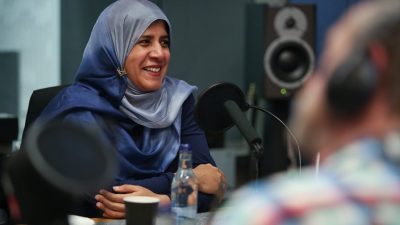
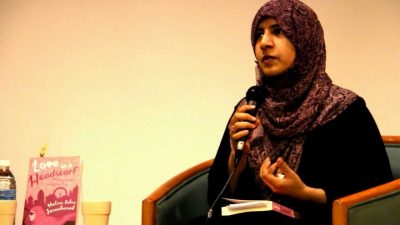
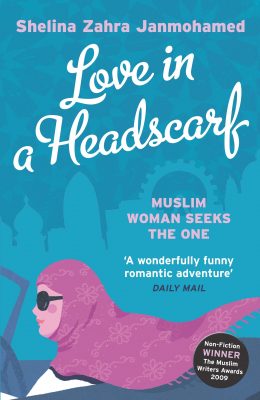
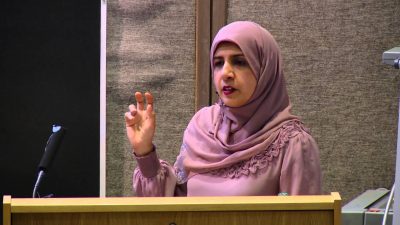
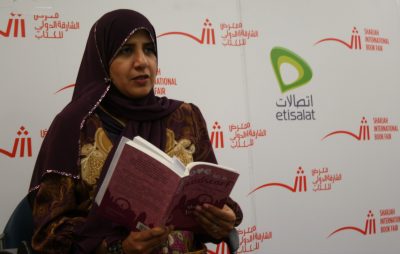
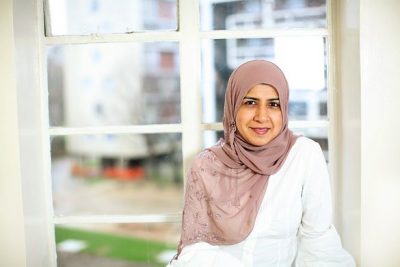
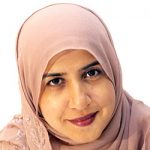

No Comments Yet!
You can be first to comment this post!